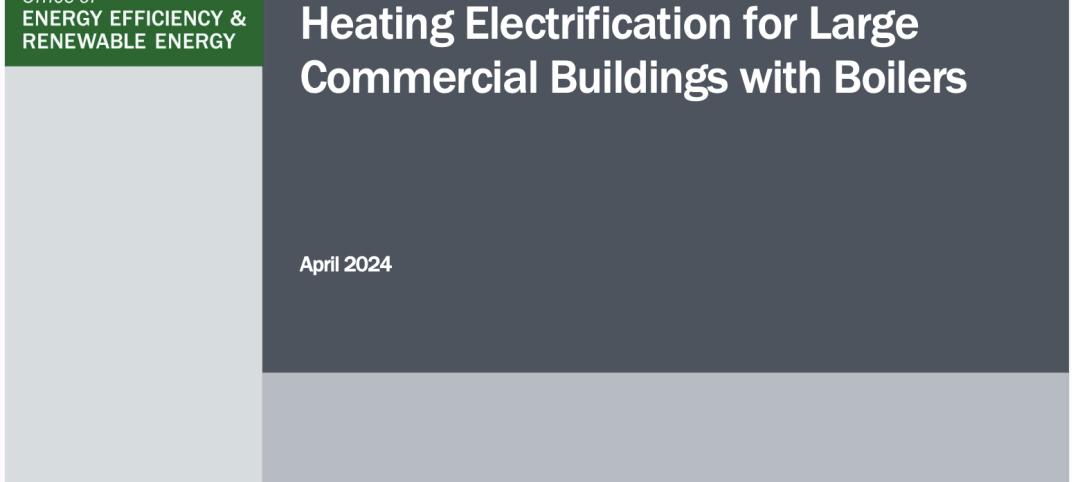Recent findings from the Better Buildings Partnership raise serious questions about the efficacy of energy efficiency ratings used in the United Kingdom.
The study found that buildings that have received the highest rating—an A Energy Performance Certificate—use more energy than some of their peers rated C, D, E, or F. The analysis of self-reported energy data in 2020 for more than 1,100 commercial properties found that the median energy intensity for all B-rated buildings is higher than for C-rated buildings.
The disparity between how buildings are designed and their actual greenhouse gas emissions is widespread in the U.K. The findings are in line with past evidence that green building certifications based on predicted energy use don’t necessarily translate to energy savings in the field.
Some studies have found that LEED certification yields better energy efficiency, but others have found that certified buildings use more energy than non-certified buildings. The U.S. Green Building Council maintains that its own research shows certified buildings are overall more efficient.
Part of the explanation for the disparity between ratings systems and real-world results could be due to the limitation of assessments that only predict potential energy efficiency. In practice, building management systems may not be set up or used properly. In addition, people sometimes undo the efficiency design by bringing fans into buildings or installing additional air conditioners.
Related Stories
MFPRO+ News | May 21, 2024
Massachusetts governor launches advocacy group to push for more housing
Massachusetts’ Gov. Maura Healey and Lt. Gov. Kim Driscoll have taken the unusual step of setting up a nonprofit to advocate for pro-housing efforts at the local level. One Commonwealth Inc., will work to provide political and financial support for local housing initiatives, a key pillar of the governor’s agenda.
Building Tech | May 21, 2024
In a world first, load-bearing concrete walls built with a 3D printer
A Germany-based construction engineering company says it has constructed the world’s first load-bearing concrete walls built with a 3D printer. Züblin built a new warehouse from a single 3D print for Strabag Baumaschinentechnik International in Stuttgart, Germany using a Putzmeister 3D printer.
MFPRO+ News | May 20, 2024
Florida condo market roiled by structural safety standards law
A Florida law enacted after the Surfside condo tower collapse is causing turmoil in the condominium market. The law, which requires buildings to meet certain structural safety standards, is forcing condo associations to assess hefty fees to make repairs on older properties. In some cases, the cost per unit runs into six figures.
Codes and Standards | May 10, 2024
California law that ended single-family zoning is struck down by court
A law ending single-family-home-only zoning in California was ruled unconstitutional by a Los Angeles County Superior Court judge. The decision could lead to the law being invalidated in the state’s largest cities.
Sustainability | May 10, 2024
Perkins&Will’s first ESG report discloses operational performance data across key metrics
Perkins&Will recently released its first ESG report that discloses the firm’s operational performance data across key metrics and assesses its strengths and opportunities.
Codes and Standards | May 10, 2024
Guide on electrifying space heating for large commercial buildings with boilers released
The U.S. Department of Energy has released a guide on electrifying space heating for large commercial buildings with boilers. The guide summarizes key considerations for people seeking to retrofit existing large commercial and multifamily buildings, particularly those that currently heat spaces using fossil fuel-fired boilers.
MFPRO+ News | May 10, 2024
HUD strengthens flood protection rules for new and rebuilt residential buildings
The U.S. Department of Housing and Urban Development (HUD) issued more stringent flood protection requirements for new and rebuilt homes that are developed with, or financed with, federal funds. The rule strengthens standards by increasing elevations and flood-proofing requirements of new properties in areas at risk of flooding.
Government Buildings | May 10, 2024
New federal buildings must be all-electric by 2030
A new Biden Administration rule bans the use of fossil fuels in new federal buildings beginning in 2030. The announcement came despite longstanding opposition to the rule by the natural gas industry.
Codes and Standards | May 10, 2024
Specification for field testing newly installed storefronts, curtain walls, sloped glazing systems updated
The Fenestration and Glazing Industry Alliance (FGIA) updated a specification establishing requirements for field testing newly installed storefronts, curtain walls, and sloped glazing systems.
Codes and Standards | May 3, 2024
New York City considering bill to prevent building collapses
The New York City Council is considering a proposed law with the goal of preventing building collapses. The Billingsley Structural Integrity Act is a response to the collapse of 1915 Billingsley Terrace in the Bronx last December.

















